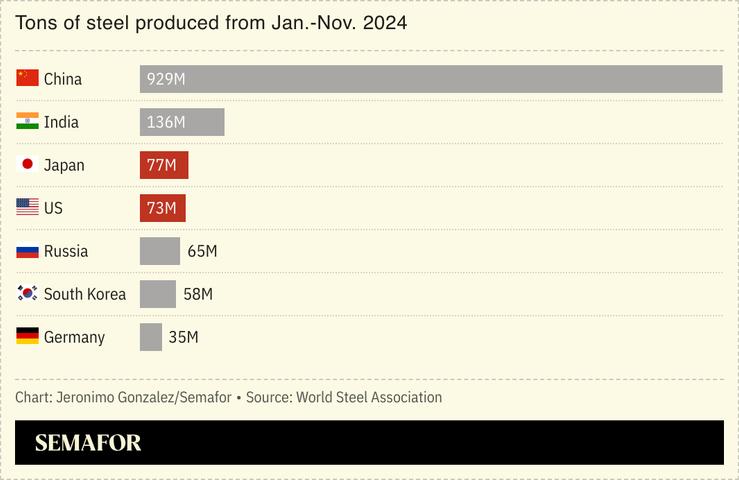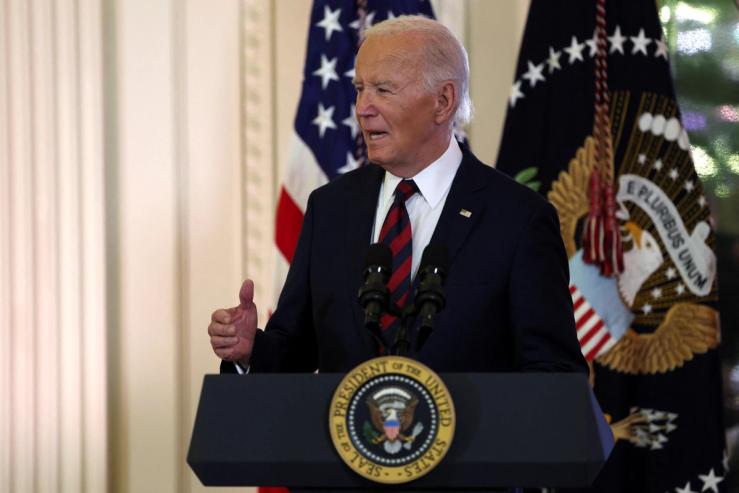The News
US President Joe Biden on Friday blocked the proposed $15bn takeover of US Steel by a Japanese rival in a striking use of executive power by the outgoing leader.
There is “credible evidence” to suggest that through the proposed acquisition, Nippon Steel “might take action that threatens to impair the national security of the United States,” Biden said in a presidential order published Friday.
The decision comes after months of hardening rhetoric against the deal from both the sitting president and his successor, Donald Trump, as well as criticism of the takeover from a major steelworkers union.
In a joint statement, Nippon Steel and US Steel described Biden’s decision to block the deal as “political” and a “clear violation of due process and the law.”
“It is shocking — and deeply troubling — that the US government would reject a procompetitive transaction that advances US interests and treat an ally like Japan in this way. Unfortunately, it sends a chilling message to any company based in a US allied country contemplating significant investment in the United States,” they added.
SIGNALS
Move to block deal could damage US-Japan relations
Senior White House advisers told Biden that rejecting the deal could damage US relations with Japan, The Washington Post reported, and Japanese officials have issued similar warnings. That Biden ignored this advice reveals the limits of so-called “friendshoring” — striking deals with countries perceived as long-term, reliable allies — which has been a cornerstone of his administration’s rhetoric on trade, the Financial Times’ Tokyo bureau chief argued: “The US has again allowed the huge caveats that come with its friendship to overwhelm the situation, even when its own interests almost certainly lie in allowing Nippon to invest in US manufacturing.”

Democrats want to hold onto unionized votes
For all the talk of national security concerns, this decision “is a cover for motives that are purely rooted in electoral politics,” a Foreign Policy columnist argued: Donald Trump and former Democratic presidential candidate Kamala Harris both opposed the acquisition in a bid to court unionized workers, particularly in Pennsylvania, where US Steel is headquartered. But with the country’s “educated elite” now comprising much of the Democrats’ base, the party has struggled to hold onto its pro-worker credentials, having become “more corporatist, pro-globalization, and cosmopolitan,” The Atlantic wrote: Nearly half of union households voted Republican in 2024, up from 43% in 2016 and 37% in 2000.


